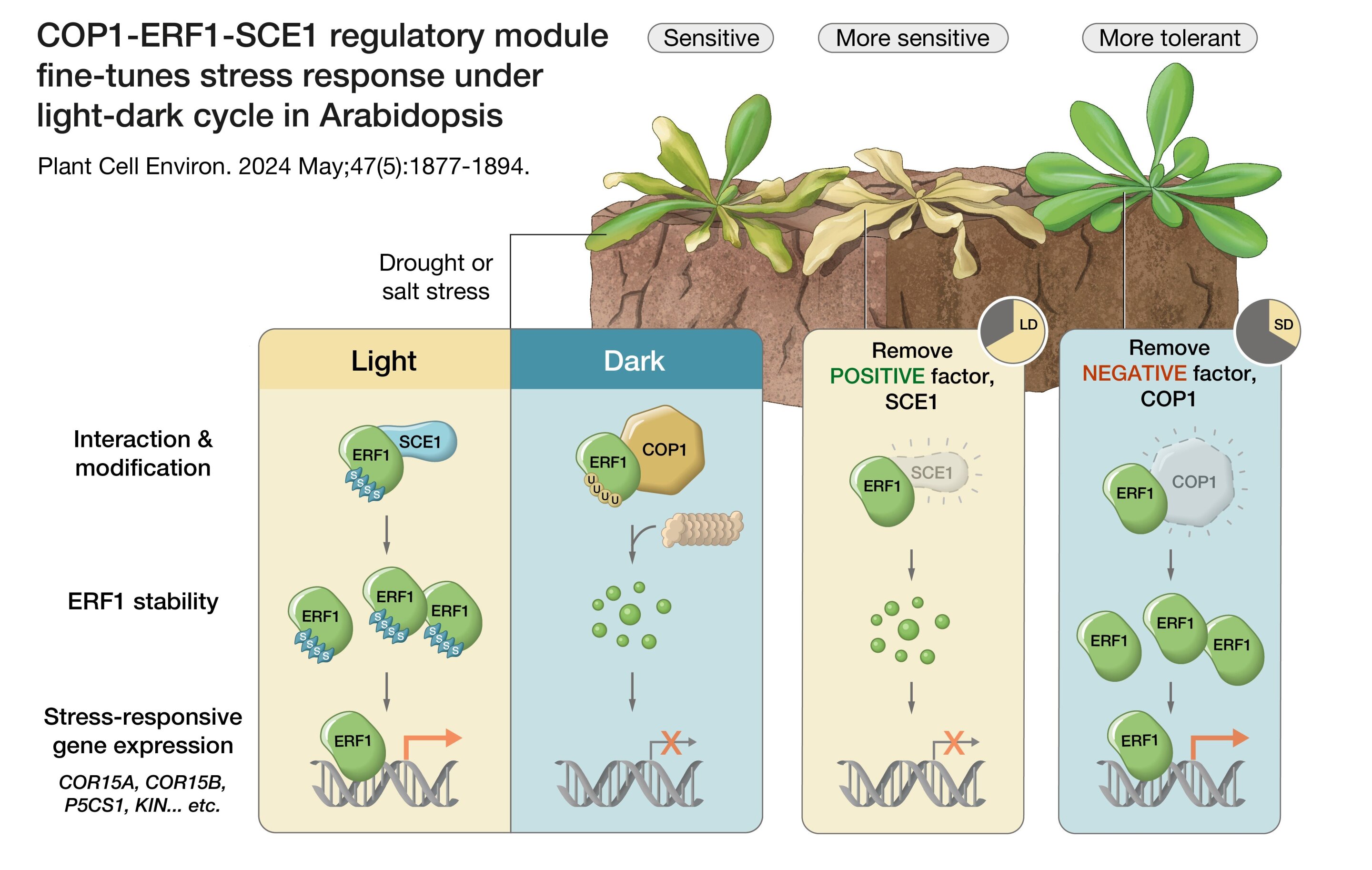Researchers at National Taiwan University discovered how light stabilizes a key stress-response protein, offering insights into improving crop resilience to harsh environments.
Understanding how plants respond to environmental stress is crucial for improving crop resilience. Now, in a new study published in Plant, Cell & Environment, researchers from National Taiwan University have uncovered how light stabilizes a key stress-response protein, offering new insights into plant adaptation.
The research team investigated ERF1, a transcription factor that helps plants tolerate drought and high salinity. While ERF1 is essential for plant survival under stress, its stability fluctuates under different light conditions. The team discovered that two enzymes—SCE1 and COP1—compete to regulate ERF1's stability, directly influencing the plant's ability to withstand harsh environments.
Under light conditions, SCE1 interacts with ERF1 and modifies it through SUMOylation, preventing its degradation. This allows ERF1 to activate stress-response genes and improve plant resilience. However, in darkness, COP1 modifies ERF1 differently, marking it for degradation and weakening the plant's stress response.
"We were excited to find that these two enzymes compete to determine ERF1's stability," says Hui-Hsien Chang, co-first author of the study. "This competition ultimately influences how well plants respond to environmental challenges."
By altering ERF1's modification sites, the team demonstrated that ERF1 could be stabilized even in darkness. These findings provide a new approach to engineering stress-tolerant crops by fine-tuning light-responsive pathways.
"Our findings provide a clearer understanding of how plants use light to regulate stress responses," explains Prof. Mei-Chun Cheng, corresponding author of the study. "This knowledge could be applied to developing crops that are better suited to changing climates."
The results of this study could help guide agricultural strategies aimed at developing climate-resilient crops.
More information: Wen‐Chi Lin et al, COP1‐ERF1‐SCE1 regulatory module fine‐tunes stress response under light‐dark cycle in Arabidopsis, Plant, Cell & Environment (2024). DOI: 10.1111/pce.14850
Provided by National Taiwan University


